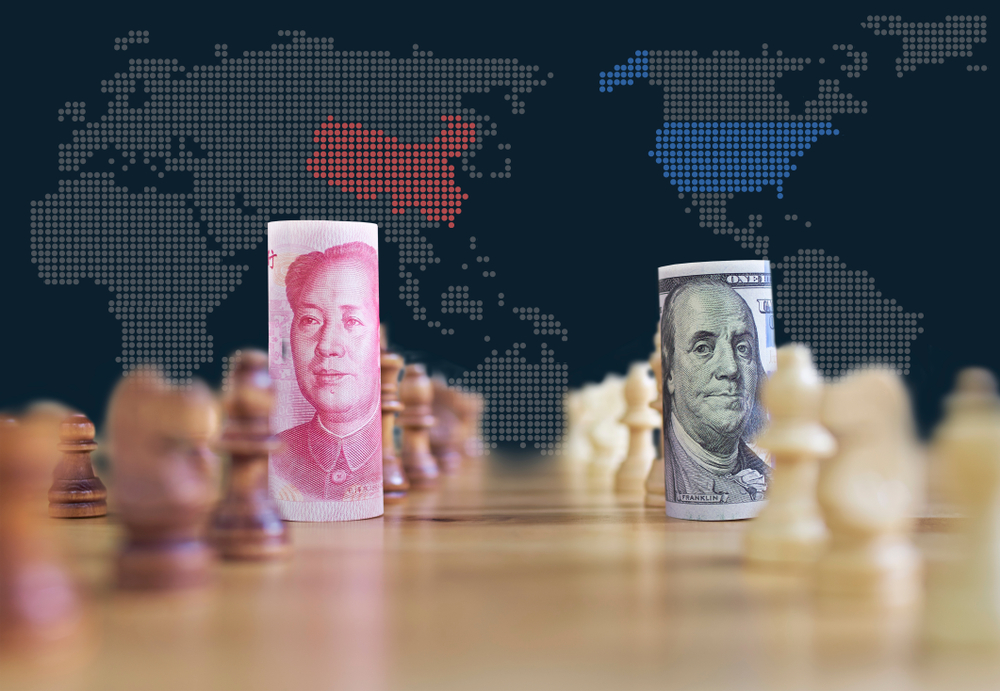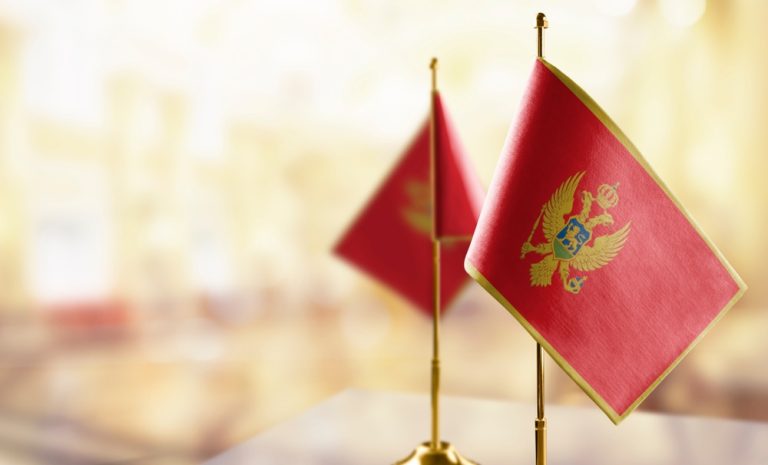
“New Cold War” between the U.S. and China gathers momentum and is filled with “hot” plans
Today the system of sustainable liberal globalism is crumbling before our eyes, and the world is entering a new conflict, which we have already repeatedly called the “New Cold War”. The key confrontation will unfold between coalitions led by the United States and China, with the active participation of such regional powers as Russia, India, Turkey and Iran. It begins to appear in the yet localized and jerky “symptoms” familiar to people who caught the first Cold War in adulthood, which lasted from 1945 to 1991.There is no doubt that these signs will become more pronounced and clearer with each passing time. But to understand the trends, one need only consider some of the events that have occurred in just the last months. For example, in light of Xi Jinping’s visit to Moscow, the United States was concerned about the growing alliance between China, Russia and Iran, which many “hawks” consider a “fatal legion” for the U.S. Besides, sad to say, Washington itself played a direct role in the formation of this bloc by waging a sanctions war against all three countries.
Last year, the Biden administration tried to put pressure on Beijing to create a rift in relations between Russia and China. However, after the start of the war in Ukraine, these efforts finally came to nothing, and now China-U.S. relations are in a deep crisis, amid the confrontation over Taiwan, stratostats and a potential ban on TikTok in the United States. This confrontation has finally become not situational, but systemic. U.S. military experts fear that the results of the visit could have led to agreements on the supply of certain types of weapons, in particular shells, artillery and drones. The U.S. admits that its ability to impede military cooperation between Russia and China through sanctions is very limited, and Washington is not able to influence them. It is also important to understand that in polls a solid majority of Americans, 61%, consider China to be the main threat to U.S. foreign policy. Russia is rated as such by only 22% of Americans. Republicans in Washington criticize Biden on this basis for the policy that led to the rapprochement between China and Russia, calling it the main failure of his entire presidency. In this light, the U.S. continues to prepare for a confrontation with China, and is upgrading its air defense system in Guam. The anti-Chinese AUKUS bloc’s development strategy, which may soon include New Zealand, has been planned for decades to come. Current plans to increase weapons production are also focused on a potential conflict in the Pacific, which Washington expects after 2025.

However, in relations with its European allies on the issue of militarization, the U.S. situation is somewhat more complicated, and NATO countries have been squeaking to increase military spending. In 2022, only seven NATO members managed to spend more than 2% of GDP on defense, and that is only one more country than in 2021: Lithuania has now joined the United States, Britain, Poland, Greece, Estonia and Latvia. Other European countries are hampered by the deplorable economic situation, as well as arms shortages and the inability of the European military industrial complex to quickly increase arms production, even if they are willing to pour money into it. Almost a year ago, Germany announced about allocation of 100 billion euros for rearmament of the army, however, it has not been spent so far. Berlin has ordered F-35 fighter jets from the United States, but even the first ones will not start arriving until 2026. For now, the allocated tranche is being eaten up by inflation, and only half of the 100 billion is expected to be spent on weapons. Also, the NATO countries, under pressure from the U.S., are preparing to deploy a 300,000-soldier rapid reaction force in Eastern Europe. However, here, too, everything is hampered by the lack of funds and weapons amid the depletion of European reserves due to the support of Ukraine. Brussels promises to spend up to 70 billion euros more on the army, but the increase in spending will stretch over at least three years. Several billion euros will go to resupply shells and missiles, but even here the lead time for orders will take several years. In the Indo-Pacific region, however, the rearmament of Japan’s armed forces is proceeding much more briskly and quickly.
It is hard to argue that the Chinese direction is more important for Washington than the European one, but it is the “Ukrainian issue” that the U.S. can give an effective response so far. Thus, already in spring the Americans are ready to transfer another military tranche to Ukraine in the amount of 350 million dollars. It will include ammunition, shells and missiles, as well as river boats for crossing the Dnieper River. In this direction the U.S. is more and more actively motivating Europe to spend on armament for Ukraine, but there are significant problems with it. In Brussels they are preparing to allocate in the near future two billion euros for massive purchase of shells, which will not so much replenish own supplies as cover the needs of Kiev. Though, 15 companies in 11 countries of the European Union are able to manufacture only 300,000 shells of 155 mm caliber per year, which makes the shortage of explosives, powder and TNT even more acute. Brussels sadly admits that its plans of shells purchasing will last till 2026 or so, which is not very positive news for the AFU. Thus, the Czech and Spanish shell makers are already working at the maximum of their capabilities and they expect that the expansion of production will take up to 3 years. Slovakia believes that the Ukrainian crisis will end this year and does not see the need to produce more shells. Although this is rather a lie and resignation to the fact that most of the weapons of the Slovak army have already been transferred to the AFU and will never be replaced. The military companies logically demand insurance from Brussels in case the conflict ends and the demand for shells and missiles drops drastically. Negotiations with them are very difficult, and some officials in Brussels are already “patriotically” calling simply to give contracts to other countries, such as South Korea. In such a situation, the only country that manages to increase shell production is the United States. However, even this will not be enough to keep up with the pace of burning ammunition on the Ukrainian front. At the same time, the U.S. is now giving Kiev significantly fewer missiles and shells. The Pentagon, already preparing for a conflict in the Pacific, is increasingly reluctant to use its reserves in Ukraine.
But the U.S. struggle with China is not only expressed in military cooperation between the Americans and their allies in Asia or Europe. Now the president of Taiwan, the main anti-China bastion, Tsai Ing-wen, is touring the New World. She visited New York and then went to Latin America. In Latin America, Ing-wen tried to maintain diplomatic relations with countries that recognize Taiwan’s independence. Just now one of these countries, the Republic of Honduras, has abandoned ties with Taiwan in favor of China. If Belize and Guatemala follow suit, the number of countries that have official diplomatic relations with Taiwan will be reduced to 10. In the U.S., the president of Taiwan has tried to negotiate new military tranches, which is currently in trouble because weapons intended for Taipei go to Ukraine. It is indicative that against this background the former president of Taiwan and representative of the Kuomintang, Ma Ying-jeou, visited China. This was the first ever visit of a retired Taiwanese leader to mainland China and this party’s ties with the Chinese Communist Party (CCP) are only growing stronger. They present themselves as the party of peace and promise voters to prevent a war over Taiwan between China and the United States. Washington, on the other hand, is concerned about the prospects of the Kuomintang winning the February 2024 election fearing a repeat of the “Hong Kong scenario” on the island. That is why the United States will now support the liberal opponents of the Kuomintang in elections in every way possible. But even if they are defeated, Washington leaves room for maneuver being able to drag Japan or Australia into the confrontation in the Pacific in addition to Taiwan, which could replace the Republic of China in the role of “battering ram” against China.

In addition, Washington is also concerned about China’s reconciliation activities in Ukraine. The White House rather hastily refused to consider it, but now Beijing can use it as a tool of its “soft power,” acting as a peacemaker in the eyes of the “Third World”. The Biden administration reacted very harshly to Xi Jinping’s visit to Moscow, with U.S. Secretary of State Blinken saying that Beijing “feels no responsibility to hold the Kremlin accountable”. Now the White House could stage another round of sanctions against Chinese companies that would invest in the Russian economy, or, as Washington believes, start supplying arms, including shells, artillery and drones. Criticizing the president, Republicans call the rapprochement between Russia and China the main failure of Biden’s policy, and former Trump adviser John Bolton believes that the China-Russia alliance is a more serious challenge for the United States than the Ukrainian conflict. The White House also fears that excessive pressure on China will encourage Beijing to pursue policies that run counter to U.S. interests. Recently, China has already succeeded in restoring relations between Iran and Saudi Arabia, which took many in the U.S. by surprise.
Nevertheless, an aggressive course in relations with China is still the main course. Thus, most recently, Congress held a heated hearing on the prospects of banning TikTok in the U.S. Lawmakers accused the leaders of the social network of sending American data to China and called TikTok a “digital fentanyl,” on which Americans are deliberately planted as a drug. The White House considers TikTok a threat to U.S. national security, but now Biden’s team is rather against blocking the app altogether because TikTok has a huge American audience of 150 million people. Banning TikTok would cause public outrage, and could severely hurt Biden’s already dwindling ratings. For the Democrats, the situation is complicated by the fact that TikTok’s audience, the “zoomer” generation, is their electorate. And blocking TikTok could really hurt the Democratic Party in the elections if young people simply won’t vote for it. Carter’s 1979 attempt to impose grain sanctions against the USSR, which turned the agricultural lobby against him and buried his prospects against Reagan, immediately comes to mind. Taking all this into account, the Biden administration instead proposes to force the Chinese to sell TikTok to one of the IT giants in the U.S., like Alphabet or Meta. Their lobbyists are probably already actively trying to resolve this issue in their favor in order to get their hands on TikTok’s assets. But this option was sharply opposed in Beijing, which in response promises to tighten the rules of exporting algorithms to recommend content from China. In this regard, the likelihood of a complete ban on TikTok in the U.S. increases, and it threatens to very seriously divide American society. It also increases the likelihood of a tougher confrontation between the United States and China. This means that with each year or even month we will see more and more manifestations of the Cold War, which could fundamentally change the world in which we now live.


Average Rating